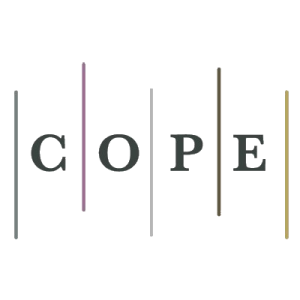2137 Views | 6533 Downloads
Editor’s Foreword and Introduction to Vol. 6 (S) Jun. 2024
Nayan Deep S. KANWAL
Welcome to the first special issue of 2024 of the Horizon Journal of Humanities and Social Sciences Research (JHSSR). As a peer-reviewed, openaccess journal (eISSN 2682-9096), JHSSR aims to bring innovative research to both academics and professionals. Published by BP Services, we are dedicated to serving the global social science community on a not-for-profit basis. Learn more about our mission here.2
JHSSR publishes original articles of archival value that span all areas of humanities and social sciences. We focus on new advances in both traditional and emerging interdisciplinary issues.
This special issue, Volume 6, Issue S, features 18 diverse articles carefully selected by our guest editors from the international conference “Managerial Excellence and Sustainable Growth: IT & Operational Issues” (ICMESG’24). This conference, organized by BIITM in association with the Operational Research Society of India, Bhubaneswar Chapter, was held on February 17, 2024.
The issue begins with a review paper by Ashutosh Parhi et al., which addresses health challenges faced by Indian tribal communities, combining insights into diseases, cultural beliefs, and traditional healing methods. The paper proposes integrating indigenous wisdom with modern healthcare for holistic solutions, contributing significantly to public health discourse.
Following this, Nirmal Kumar Routra et al. present a comprehensive examination of India’s Fintech sector, offering valuable insights for stakeholders, decision-makers, and investors on its impact, drivers, challenges, and opportunities. This study emphasizes Fintech’s role in financial inclusion and economic growth.
Fu Chuang’s research focuses on community development and sustainable support for the elderly in Taiwan. This paper underscores the importance of promoting social interaction among elderly individuals to enhance community operations and sustainability.
Trần Thị Vân Dung et al. explore the quality of teaching and learning English from a multicultural perspective, emphasizing cultural diversity’s role in educational landscapes. This article highlights the need for adaptability, cultural sensitivity, and flexibility in English language instruction.
Saumendra Das et al. discuss the challenges and benefits of adopting Agile in change management, providing insights relevant to management professionals.
Ramesh Varma Rudraraju’s study investigates employee absenteeism and the role of HR analytics in improving productivity and profitability. This paper explores the impact of attendance bonuses and rewards on employee motivation.
Shiva Ram Patnaik examines the socio-cultural and academic adaptation of international students in eastern India, offering insights into their challenges and successes through statistical analysis.
Jyotikanta Panda discusses the significance of resilient IT infrastructure in the contemporary business environment, focusing on the interplay between technological innovations and human adaptability.
Vivek Vishal Giri presents a status report on green product use by consumers, emphasizing the shift towards recyclable bags in response to environmental concerns.
Sarita Manjari Prusti highlights the synergy between inclusive leadership and effective communication in fostering a positive organizational culture.
Manik Chand Dey’s paper investigates the volatility of gold as an investment, providing empirical evidence on its behavior compared to other financial assets.
Abhilash Mishra’s study on digital marketing explores the influence of demographic factors on online shopping behavior and the attributes affecting buying psychology.
Prasant Kumar Rout et al. analyze the shift in consumer behavior towards individual healthcare insurances post-COVID-19, offering insights into demands and trends in the healthcare sector.
Rituparna Ghosh et al. provide an opinion piece on the principles of academic writing, offering a structured guide for novice scholars embarking on their research journeys.
The case studies in this issue cover various topics, including “moonlighting” in corporate environments (S. Boopathy et al.), technological advancements in production methods in the automobile industry (Ribhushankar Anand et al.), and motivation factors influencing craft purchases in India (Madhuchhanda Mandal Biswas et al.). Finally, Sibnath Sarkar’s case study discusses the role of women entrepreneurs in Madur mat production in West Bengal, highlighting their impact on local livelihoods.
This issue reflects JHSSR’s commitment to fostering diverse and impactful research. We encourage you to explore these articles, engage in discussions, and share this resource with your peers.
We are proud to have surpassed 1,315 submissions, with only 245 accepted and published, maintaining rigorous review standards. This issue continues to uphold our commitment to high-quality research that contributes significantly to the academic community.
Our Quality
All the papers published in this edition underwent a rigorous yet relatively rapid double-blind peer-review process involving a minimum of three reviewers comprising internal as well as external referees, which translates to benefits such as timeliness of publication, widespread dissemination, high visibility, and likelihood of high citations and broader impacts. This was also to ensure that the quality of the papers justified the high ranking of the journal, which hopes to be one at par with one of the renowned and heavily-cited journals not only by authors and researchers in Malaysia and America but by those in other countries around the world as well.
The Editorial Board of JHSSR welcomes your contributions and looks forward to many years of fruitful research to come. We continue to welcome submissions in all fields of humanities and social sciences. Horizon JHSSR is currently accepting manuscripts for its second 2024 issue based on original qualitative or quantitative research that opens new areas of inquiry and investigation. Empirical articles should demonstrate high rigor and quality. Original research collects and analyses data in systematic ways to present important new research that adds to and advances the debates within the journal’s fields. The editors hope that the authors publishing in this journal can support the noble cause of JHSSR in reaching its goals.
JHSSR also invites call for proposals for 2024-25 Special Issues. Our journal aims to provide a platform for researchers and technical experts to publish original papers, reviews and communications on all aspects of humanities and social sciences research. We strive to maintain a high standard of scientific objectivity, and we ensure that all submitted articles undergo a stringent yet relatively rapid double-blind peer-review process, which translates to benefits such as timeliness of publication, widespread dissemination, high visibility, and likelihood of high citations and broader impacts. Alongside a mission-driven Editor-in-chief, the globally diverse Editorial Board works with prominent scientific community to create a fast moving and rigorous editorial reviews. JHSSR follows code of conduct stipulated by the Committee on Publication Ethics (COPE). Proposals can be submitted directly via email to cee.horizon@gmail.com
Let me conclude by saying that with the publication of this issue, we are now completing six years of continuous and successful scholarly publication of Horizon JHSSR. Changing publishing norms and expectations have given rise to a new wave of publishing standards that we’ll be riding into 2025 soon and b*yond. I am confident that the upcoming year will bring yet another challenging year of emerging scholarly articles.
Only time will tell what the next decade has in store, but one thing for sure is we will likely see greater innovation in all areas of scholarly publishing with emphasis on A.I. If you are observing other scholarly publishing trends, please do share your thoughts with the Chief Executive Editor!
Last but not the least, I thank all contributing authors, reviewers, editors, and the editorial office in Texas. Your efforts have made this issue possible. We look forward to your continued support and future submissions.
Thank you for your continued support. We hope you find these articles thought-provoking and valuable in your academic pursuits, and look forward to further enriching the scholarly discourse in future issues.
As we celebrate six years of continuous publication, we anticipate a future filled with innovation in scholarly publishing. We hope these articles inspire and inform your academic pursuits.

DOI: https://doi.org/10.37534/bp.jhssr.2023.v6.nS.id0013.p1
Download Full PDF



